By Paula Briggs
This post shares the process of 11 year old girl as she paints an acrylic self-portrait for a school project inspired by Renaissance art.

Stage 1: Reference material
Inspired by the chiaroscuro in many Renaissance paintings, Rowan directed a photogragh of herself against a dark background and wearing simple clothes. In particular she wanted the image to seem timeless, and not to feature elements which would reference a particular age or location.
The chosen photograph was then printed out to use as reference, once in colour and once in black and white which helped see tonal values.
Stage 2: Making a rough sketch in paint
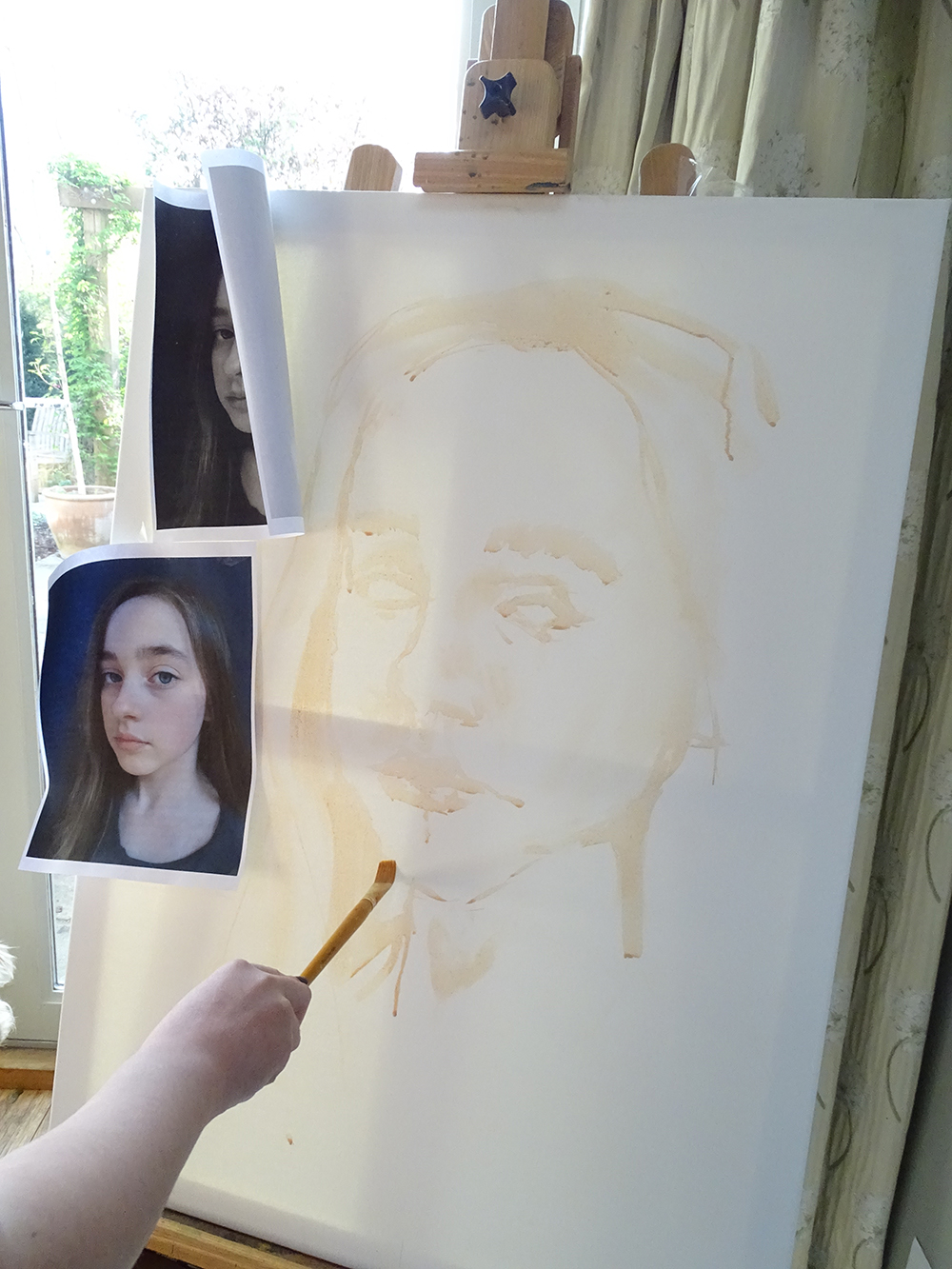
Using watered down acrylic paint in a neutral tone and a long handle brush, Rowan sketched out her main features.
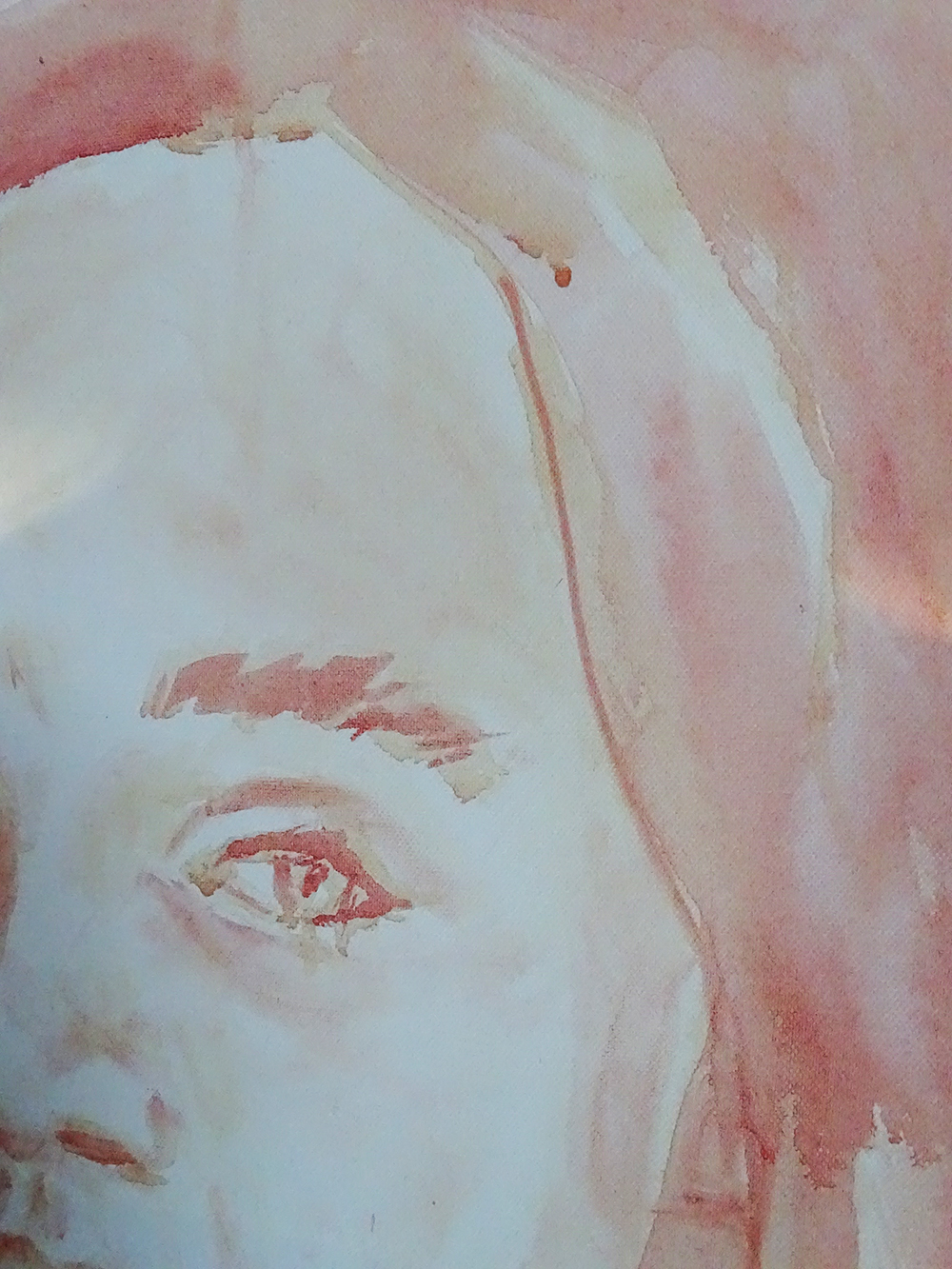
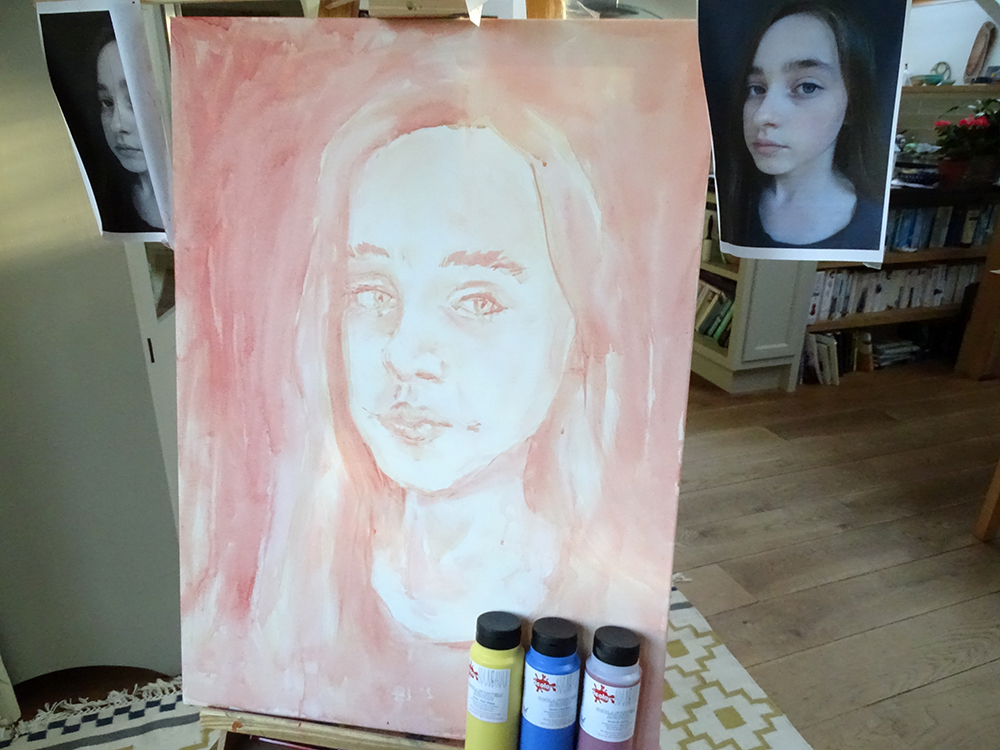
Stage 3: Darkest darks
Rowan knew instinctively she wanted the background to be dark, together with the fabric of her top, and that she would use these two elements to frame her hair and her face. Using Scolaquip acrylic paint (see review below), Rowan mixed a variety of browns and blues to get the background blocked out.
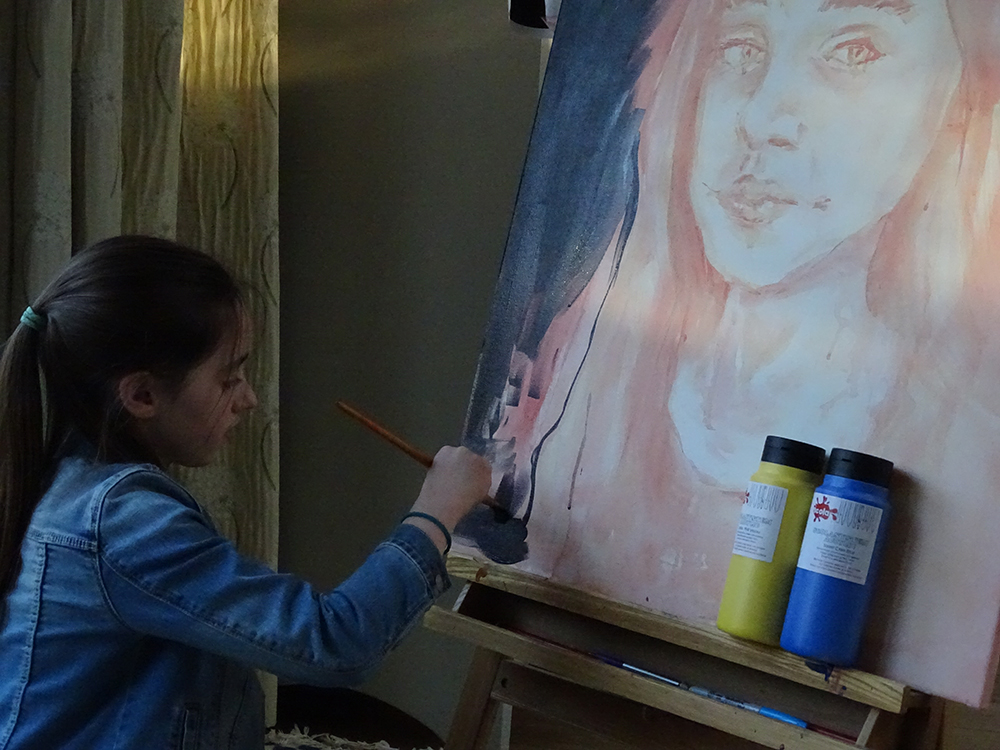
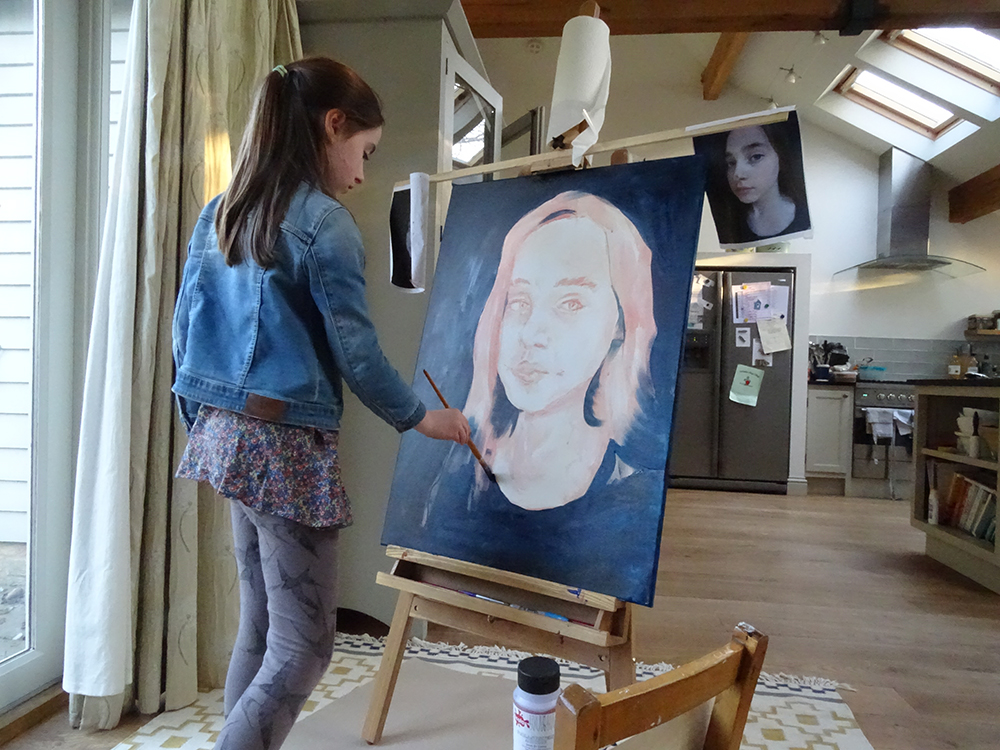

Stage 4: The face
Lastly Rowan returned to the face itself, trying to capture the light which would help describe form, and checking the dark tonal values of the face were in balance to the darkness of the background.
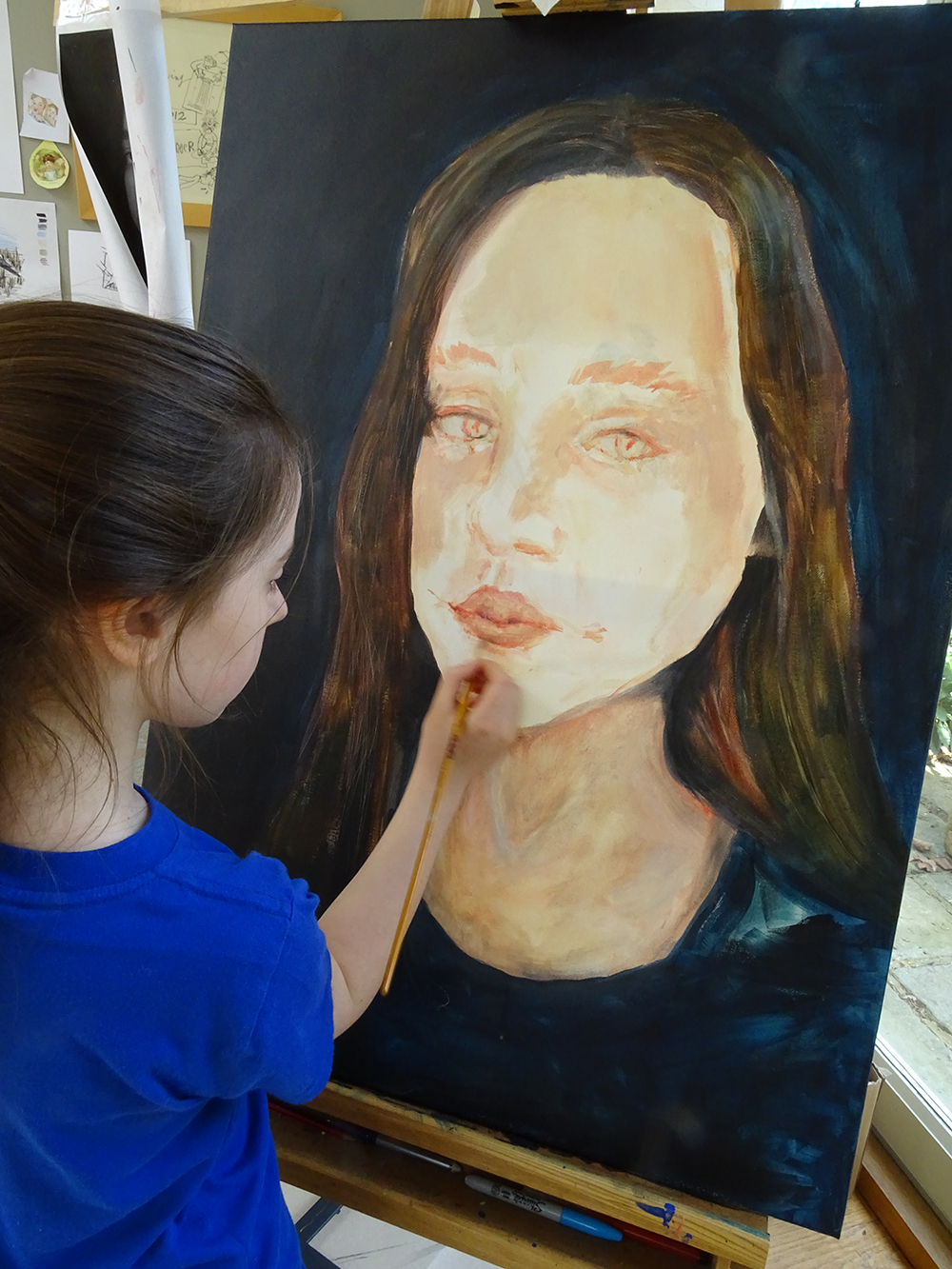
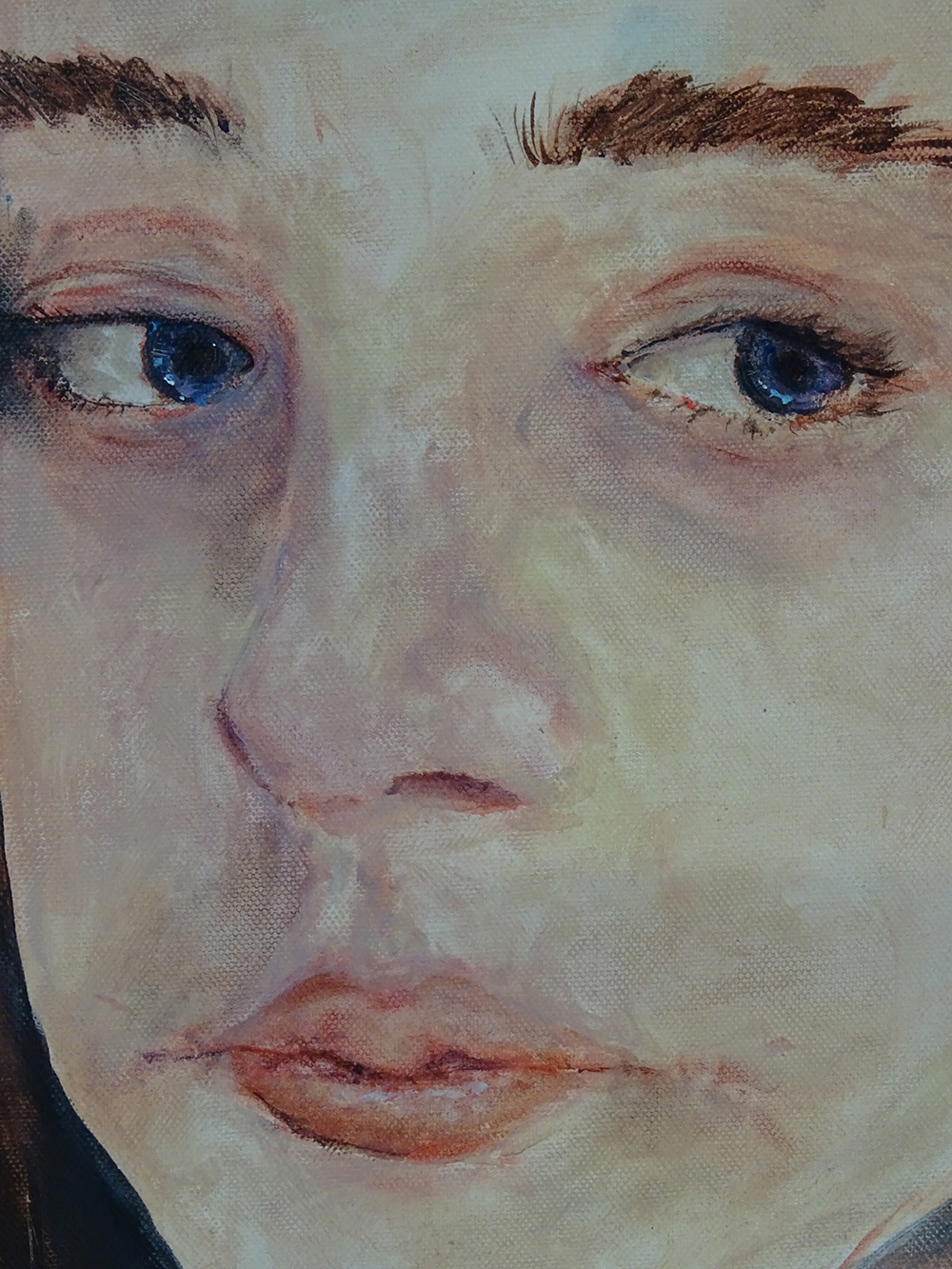
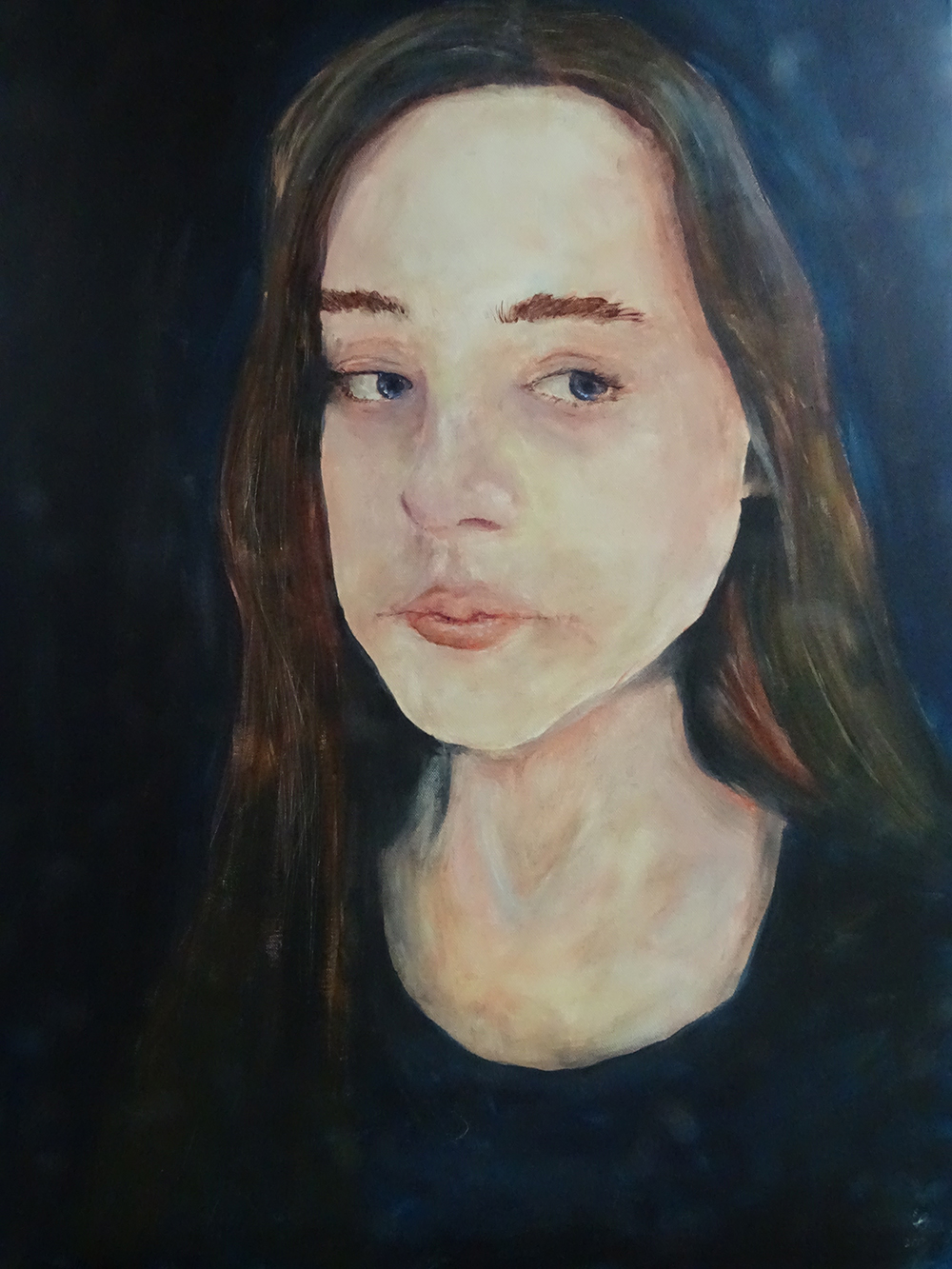
Review of Scolaquip Acrylic Paint
This paint offers incredible value for money BUT the quality is excellent. Unlike many school-grade acrylic paints, which contain no acrylic or cheap polymers, Scolaquip Acrylic Paint is made using only pure acrylic resin. It provided an excellent opportunity to work on a large scale without being worried about using too much paint.
The paint mixes easily, both with water or with itself. It’s got great body which means that if you want to you can apply it really thickly and it will hold it’s shape (for impasto work). The paint did not dry out too quickly whilst in use, but once dry had a lovely matt sheen. It is of course non-toxic. All in all AccessArt would consider it a great enabler to encourage an exploration of acrylic paint amongst all ages.

